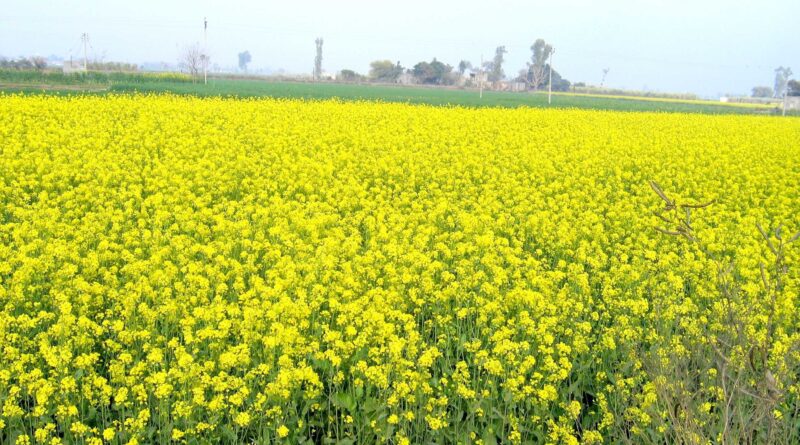Average mustard yields can jump by 35% with right practices: SEA study
By Sanjeeb Mukherjee
The average mustard yield can jump by 35 per cent over five years even with the currently available seeds if the ideal agronomic practices are adopted, a study conducted by the Solvent Extractors Association of India (SEA) has found, amid a raging debate over the yield potential of genetically modified mustard against the existing varieties.
SEA, the premier association of domestic oilseed extractors, conducted the pilot project in association with Solidaridad Network, an international civil society organisation working to facilitate the development of socially responsible, ecologically sound and profitable supply chains.
Started in 2020-21 with 400 farms in five districts of Rajasthan, the project was gradually scaled up to cover other major mustard-producing states. It was conducted in around 3,500 model farms spread across five states involving more than 125,000 farmers.
The study found a 35 per cent increase in the average yield of mustard over five years from 1,787 kilogrammes to 2,414.8 kilogrammes in the model farms as compared to the regular ones.
“The mustard model farms had implemented various strategies to achieve this target focusing primarily on enhancing mustard yields through innovative farming practices, advanced technological adoption and comprehensive farmer support programmes,” SEA said in a statement.
“The yield increases were realised using the currently available seeds and no genetically modified (GM) seed was used in the process,” BV Mehta, executive director of SEA, told Business Standard.
Apart from techno-economic inputs under the project; farmers were also trained through unique Farmers Field Schools (FFS) at the block level.
“These FFS acted as strong community institutions where farmers shared their learnings,” the statement said.
The SEA analysis showed that mustard is an ideal crop for low monsoon and less irrigated areas as it offers higher returns with a low cost of production and less water. A growth in mustard seed yield could also contribute to reducing India’s import dependency on edible oils.
Currently, India imports around 60 per cent of its annual edible oil requirements. According to the SEA, in 2022-23 (November to October) India imported around 16.47 million tonnes of edible oils valued at around Rs 138,000 crore.
“It amplifies the need for self-sufficiency in edible oil production to mitigate the impact,” SEA said.
India’s mustard seed production has grown from 8.6 million tonnes in 2020-21 to 11.35 million tonnes in 2022-23 while the area under the crop has risen from 6.70 million hectares in 2020-21 to 8.80 million hectares in 2022-23.
“The production of mustard seed is projected to reach an all-time high of 12 million tonnes in the current 2023-24 (Nov-Oct) season with sowing area at a record 10 million hectares,” the SEA said.
)
This article has been republished from The Business Standard.

